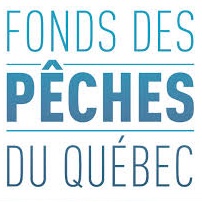
Closed
Quebec Fisheries Fund — Infrastructure
Last Update: October 27, 2025
QC, Canada
Funds to improve sustainability in Quebec's seafood sector
Grant and Funding
At a glance
Funding available
Financing goals
Research and experimental development
Reduce the ecological footprint
Eligible Funding
- Maximum amount : 2,500,000 $
- Up to 100% of project cost
Timeline
- Open Date : December 7, 2020
- Closing date : March 31, 2024
Eligible candidates
Eligible Industries
- Agriculture, forestry, fishing and hunting
Location
- Quebec
Legal structures
- Non-profit
- Public or Parapublic institution
- For-profit business
- Sole proprietorship
- Non-financial cooperative
Annual revenue
- All revenue ranges
Organisation size
- All organization sizes
Audience
- All groups
Non-profit candidates
Sector of operation
- Higher Education
- Research
- Economic, Social and Community Development
- Business Associations
Target groups
- Indigenous peoples
- Business owners / entrepreneurs
- Nonprofits / charities
- Academia / students
Revenue structures
- All structures
Scope
- Provincial
Overview
Get a contribution of up to $1 million/year for adapting or adopting new technologies, processes or equipment to improve the efficiency and sustainability of the fish and seafood sector, and for associated training.
Activities funded
- Undertake activities to market innovations in the fish and seafood sector.
- Conduct pilot projects and test new innovations for sustainability.
- Research and development driving innovations that enhance the sustainability of the fish and seafood sector.
- Establish partnerships or networks for innovation activities in the fish and seafood sector, in alignment with program objectives.
- Provide training for the adoption or adaptation of new technologies, processes, or equipment.
- Adopt or adapt new technologies, processes, or equipment to improve efficiency and sustainability in the fish and seafood sector.
- Conduct scientific activities supporting the implementation of sustainable harvesting technologies.
- Research on the impacts of ecosystem changes on fish stocks, distribution, and the commercial fishery.
- Initiatives to set up partnerships or networks supporting innovation activities in the fish and seafood sector.
Examples of admissible projects:
$ 1,000,000
Construction of a new processing plant using advanced technologies
$ 500,000
Research partnership to study ecosystem changes affecting salmon
$ 600,000
Development of eco-friendly packaging for seafood products
$ 800,000
Implementation of sustainable harvesting technology for crab fisheries in St John's
$ 650,000
Upgrade of fish farming equipment to new sustainable models
$ 750,000
Development of automated sorting equipment for shellfish
Eligibility
- The applicant must reside in Quebec and be involved in fish and seafood harvesting, processing, aquaculture, or activities supporting these sectors.
- Eligible recipients include commercial, for-profit enterprises such as cooperatives, sole proprietorships, incorporated entities, and partnerships.
- Non-commercial, non-profit enterprises like academics, industry associations, post-secondary institutions, research and innovation institutions, and Indigenous organizations or groups not classified as commercial enterprises are also eligible.
- Applicants must have the legal capacity to enter into a contribution agreement.
Who is eligible?
- Commercial, for-profit enterprises, including cooperatives, sole proprietorships, incorporated entities, and partnerships (unincorporated businesses owned by more than one person)
- Non-commercial, non-profit enterprises such as academics, industry associations, post-secondary institutions, and research and innovation institutions
- Indigenous organizations or groups that are not commercial enterprises
Who is not eligible
Some types of companies are not eligible for the Quebec Fisheries Fund grant. They include:
- Non-Canadian companies
- Public institutions
- Government departments and agencies
Eligible expenses
- Training costs.
- Publication services.
- Materials and supplies.
- Maintenance and repairs.
- Conferences and meetings costs.
- Printing and imaging costs.
- Travel costs and related expenses.
- Communications research services.
- Construction costs and related expenses.
- Purchase or rental of machinery and equipment.
- Insurance expenses related to agreement activities.
- Costs associated with building or operating permits.
- Telecommunications, communications and network services.
- Postage, transport, express services and road transport costs.
- Indirect administrative costs up to 10% of all other eligible costs.
- Professional and technical services, and other contractual services.
- Rental, leasing or chartering of office space, rooms, groups of rooms, a building or facilities.
- Cost and expenses associated with obtaining eco-certification or similar certifications.
- Salaries, employee benefits and other labor costs, including mandatory benefits from the employer.
- Costs associated with attending or giving presentations at conferences, symposia, workshops, meetings or exhibitions.
Eligible geographic areas
- Quebec, Canada
Selection criteria
- Determination of recipient eligibility based on the program's criteria.
- Assessment of eligible activities and costs within the project.
- Verification of adherence to the maximum funding amounts and stacking limits.
- Evaluation of the project's contribution to one or more objectives of the Quebec Fisheries Fund, such as innovation, infrastructure improvement, and scientific partnerships.
- Specific component objectives: Innovation: Contribution to the development or commercialization of new technologies or products, addressing major industry issues, and enhancing sustainability and productivity.
- Infrastructures: Adoption or adaptation of new technologies to improve sector efficiency, addressing major industry challenges, and increasing competitiveness and sustainability.
- Science partnerships: Enhancement of understanding and adaptation to ecosystem changes, potential to inform resource management, and technology transfer.
- Degree of collaboration and the extent of benefits to the sector, with an emphasis on multi-stakeholder engagement.
- Project rationale, including feasibility, profitability, benefits to Quebec's economy, and the likelihood of achieving results within the proposed time frame.
- Evaluation of technical, financial, and managerial capacity to implement the project successfully.
- Consideration of projects deemed key by Quebec or aligned with Canada's priorities, with attention to maximizing sector benefits in case of similar projects.
How to apply
1
Overview
- Understand the role of the Quebec Fisheries Fund in supporting innovation and sustainable development in the seafood sector.
- Identify the main objectives of the fund, including innovation, infrastructure, and scientific partnerships.
2
Who can submit an application
- Check eligibility based on your status in the fishing sector.
- Ensure that your project meets the criteria required by the fund.
3
Eligible Activities
Identify if the activities of your project align with the funded areas: innovation, infrastructure, scientific partnerships.
4
Prepare a proposal
- Write a proposal detailing the innovation or development that your project will bring.
- Enhance your proposal with relevant proof of concept or partnerships.
- Attach all requested documents and details for a complete file.
5
How to submit a request
- Submit your application according to the specific instructions provided by the Quebec Fisheries Fund.
- Use the recommended channels for sending your file, which may include an online portal or postal mail.
6
Evaluation
- Wait for the assessment of your proposal by the Quebec Fisheries Fund.
- Be ready to provide additional information if requested.
Additional information
- The Quebec Fisheries Fund program is effective from April 24, 2019, and will conclude on March 31, 2024, or when allocated funds are exhausted, whichever comes first.
- Intellectual property rights arising from a project are conferred to the recipient or may be negotiated between the parties involved for usage rights.
- Canada’s official languages obligations will be adhered to, ensuring bilingual services and promoting vitality in official language minority communities.
- The management of intellectual property includes potential negotiation for a license, benefiting public purposes without affecting the recipient's objectives negatively.
- Recipients must report actual costs incurred, financial assistance received sources, and outcomes of activities within their financial and performance reporting obligations.
- Non-repayable contributions to non-profit organizations and certain for-profit organizations are outlined, while repayable contributions are provided under specific conditions related to project success or recipient requests.
Apply to this program
Frequently Asked Questions about the Quebec Fisheries Fund — Infrastructure Program
Here are answers to the most common questions about the Quebec Fisheries Fund — Infrastructure. This section explains what the program is, how much funding is available, eligibility requirements, application deadlines, and other important details to help you determine if this grant is right for your business.
What is the Quebec Fisheries Fund — Infrastructure?
How much funding can be received?
What is the deadline to apply?
Who is eligible for the Quebec Fisheries Fund — Infrastructure program?
What expenses are eligible under Quebec Fisheries Fund — Infrastructure?
Who can I contact for more information about the Quebec Fisheries Fund — Infrastructure?
Where is the Quebec Fisheries Fund — Infrastructure available?
Apply to this program
More programs like this

Grant and FundingOpen
Support for biofood exports - individual projects
Ministry of Agriculture, Fisheries and Food (MAPAQ)SEB supports Quebec agri-food market expansion outside Quebec

Grant and FundingOpen
Innovative Projects Program
Hydro-QuébecSupports innovative, energy-efficient projects for multi-building developments
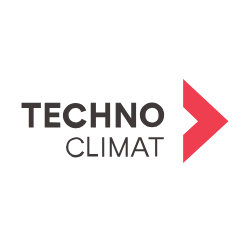
Grant and FundingOpen
Technoclimat
Environnement Québec (MELCC)Financial assistance for the demonstration of new technologies in Quebec

Partnering and CollaborationGrant and FundingClosed
Biofood Innovation Program Component 2 – Applied research, experimental development and technological adaptation
Ministry of Agriculture, Fisheries and Food (MAPAQ)Québec biofood sector innovation and knowledge transfer grant
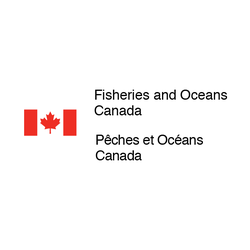
Partnering and CollaborationGrant and FundingClosed
Aboriginal Aquatic Resource And Oceans Management (AAROM) Program
Fisheries and Oceans Canada (DFO)Supports Indigenous aquatic resource and oceans management capacity development

Researchers And FacilitiesPartnering and CollaborationGrant and FundingClosed
Call for innovation projects in artificial intelligence and quantum technologies – collaborative industrial research and support for entrepreneurship
Gouvernement du QuébecSupports collaborative innovation in artificial intelligence and quantum technologies

Grant and FundingOpen
Regions and Rurality Fund (RRF) - Component 1 - Support for regional outreach
Gouvernement du QuébecSupports regional projects impacting Quebec's territories and communities
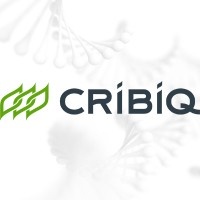
Grant and FundingClosed
CRIBIQ — PARTENAR-IA — Industry
Consortium de recherche et d'innovations en bioprocédés industriels au Québec (CRIBIQ)Funding for Quebec innovative collaborations in AI

Grant and FundingWage Subsidies And InternsOpen
Extend the employment periods of your staff — Partnership and workforce matching component
Gouvernement du QuébecEmployment Stabilization Program supports extending seasonal employment periods
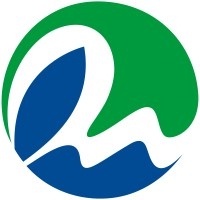
Loans and Capital investmentsOpen
Rouyn-Noranda — FLI-FLS – Entrepreneurial Succession
City of Rouyn-NorandaFLI-FLS funds projects and entrepreneurial succession in Rouyn-Noranda
Sign up to our platform to access the Quebec Fisheries Fund — Infrastructure information sheet for free
Get access to 4,000+ programs, practical guides, personalized alerts, and an AI assistant to support your grant applications.